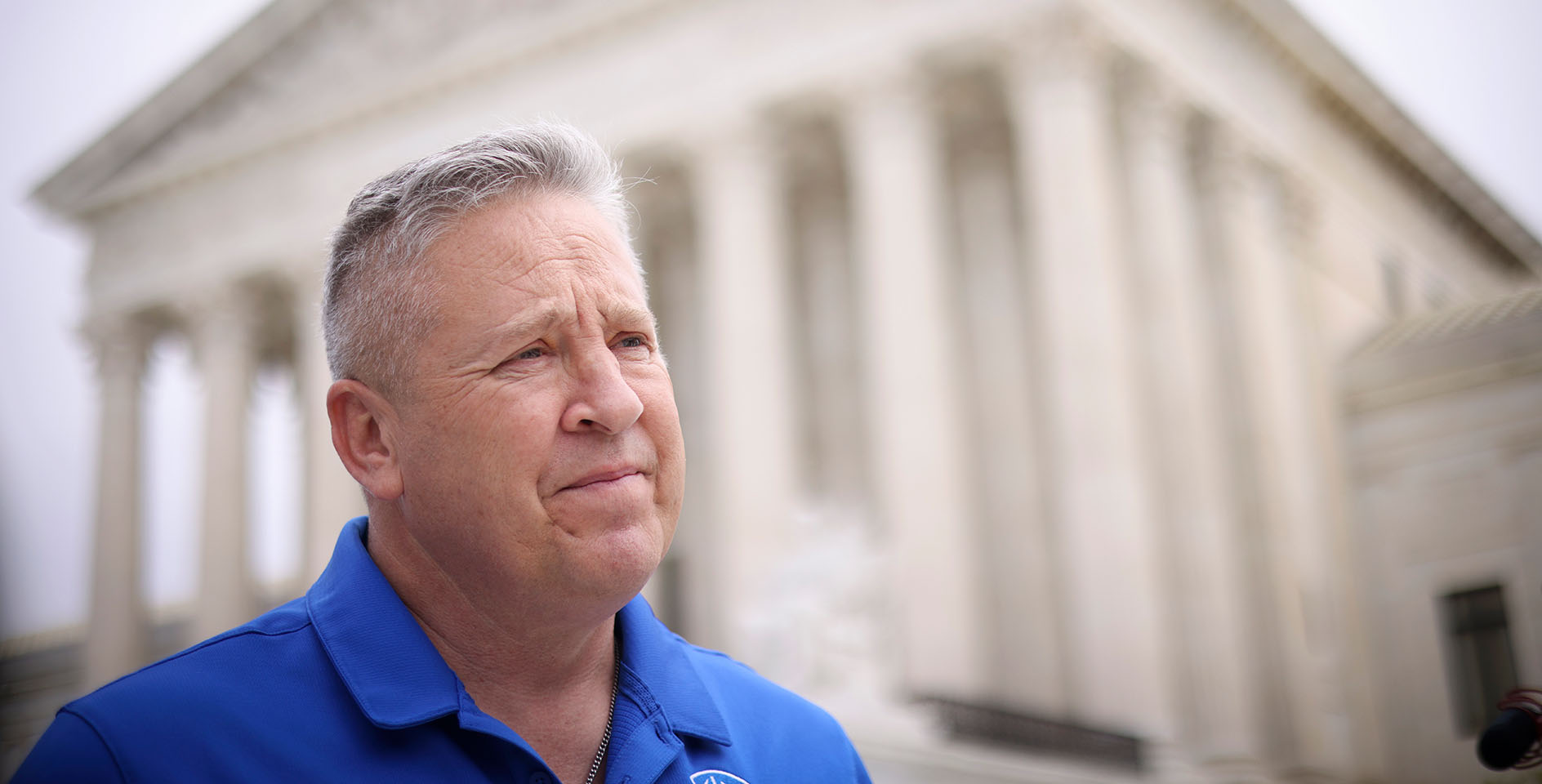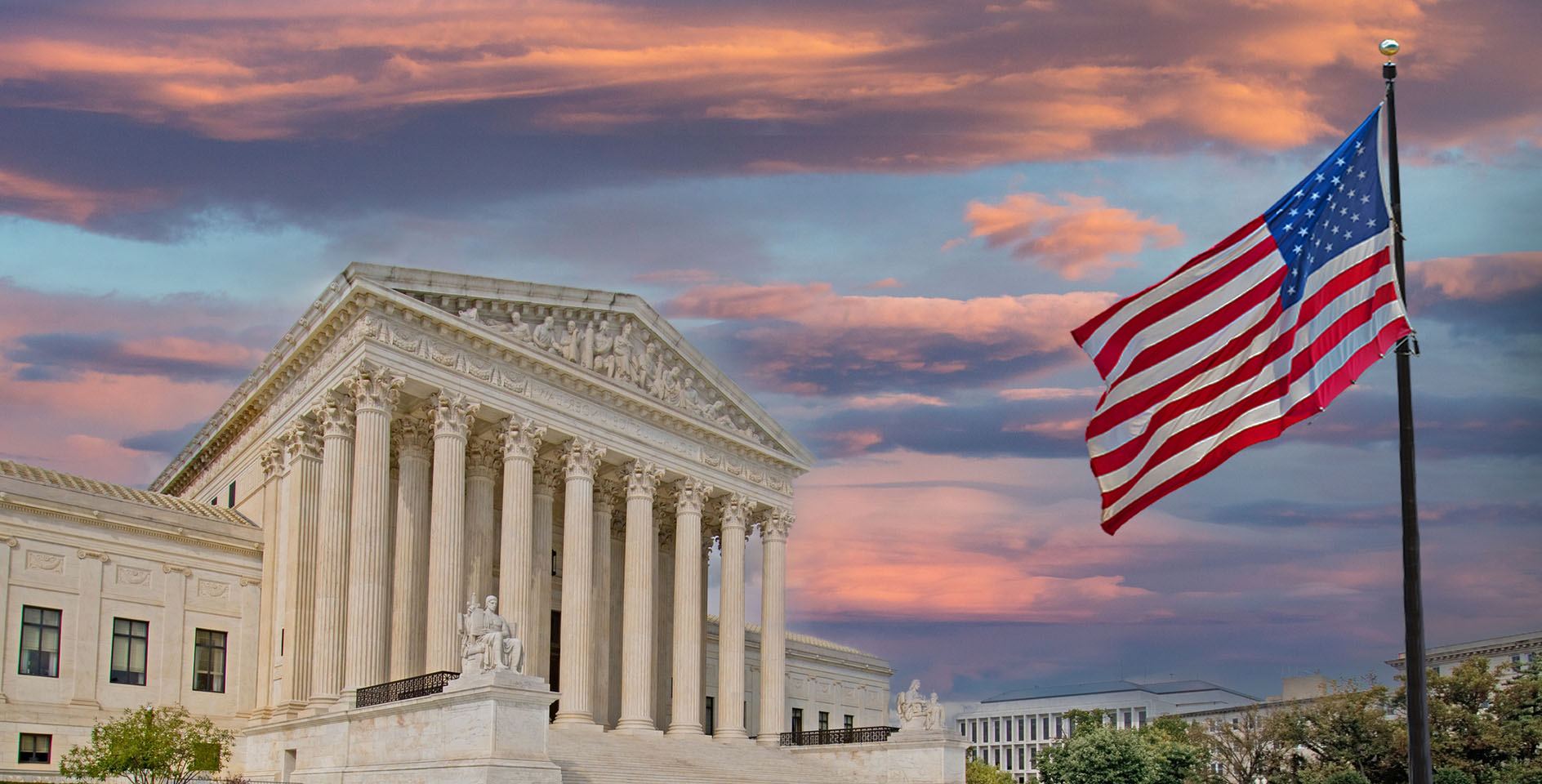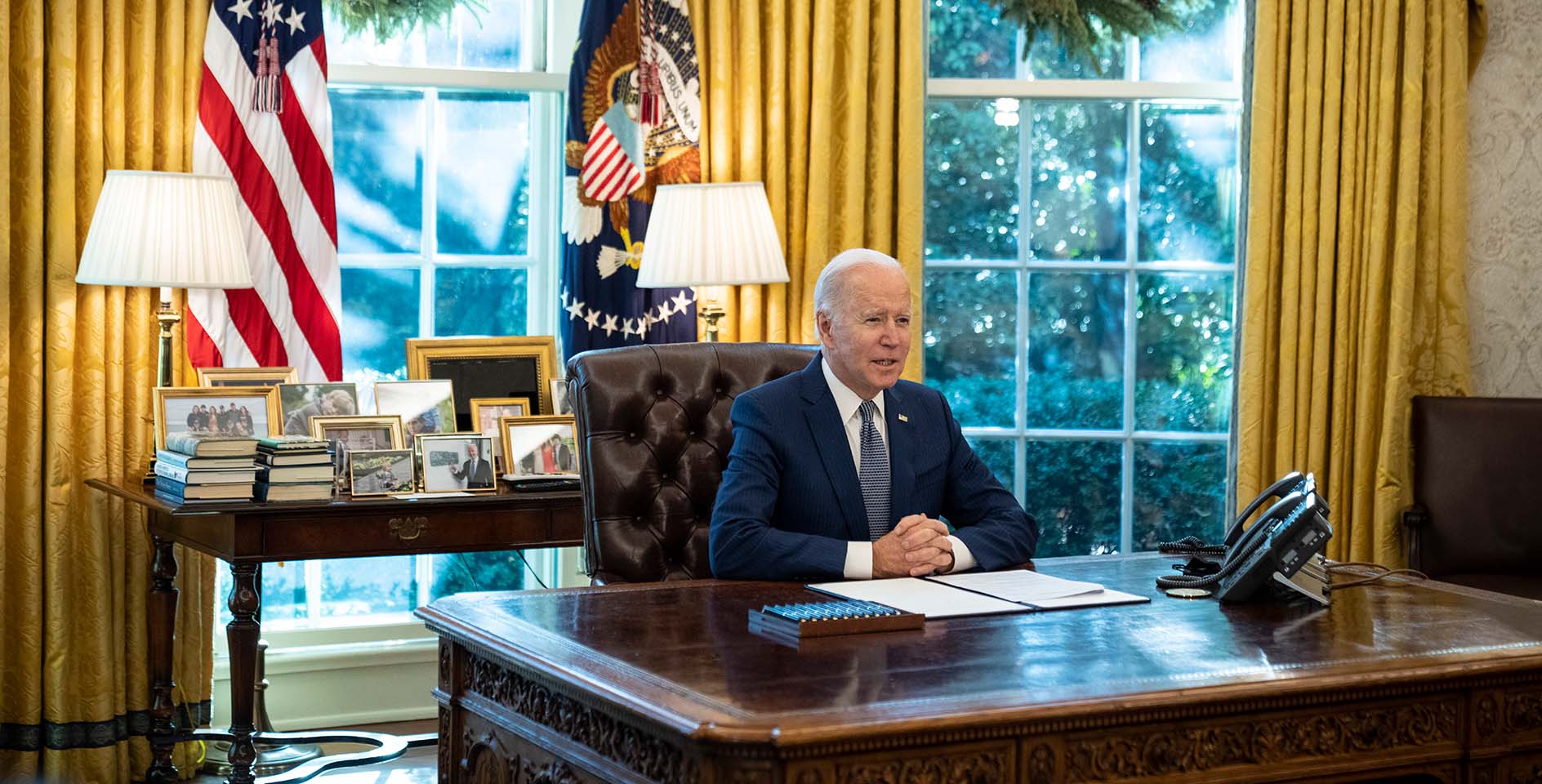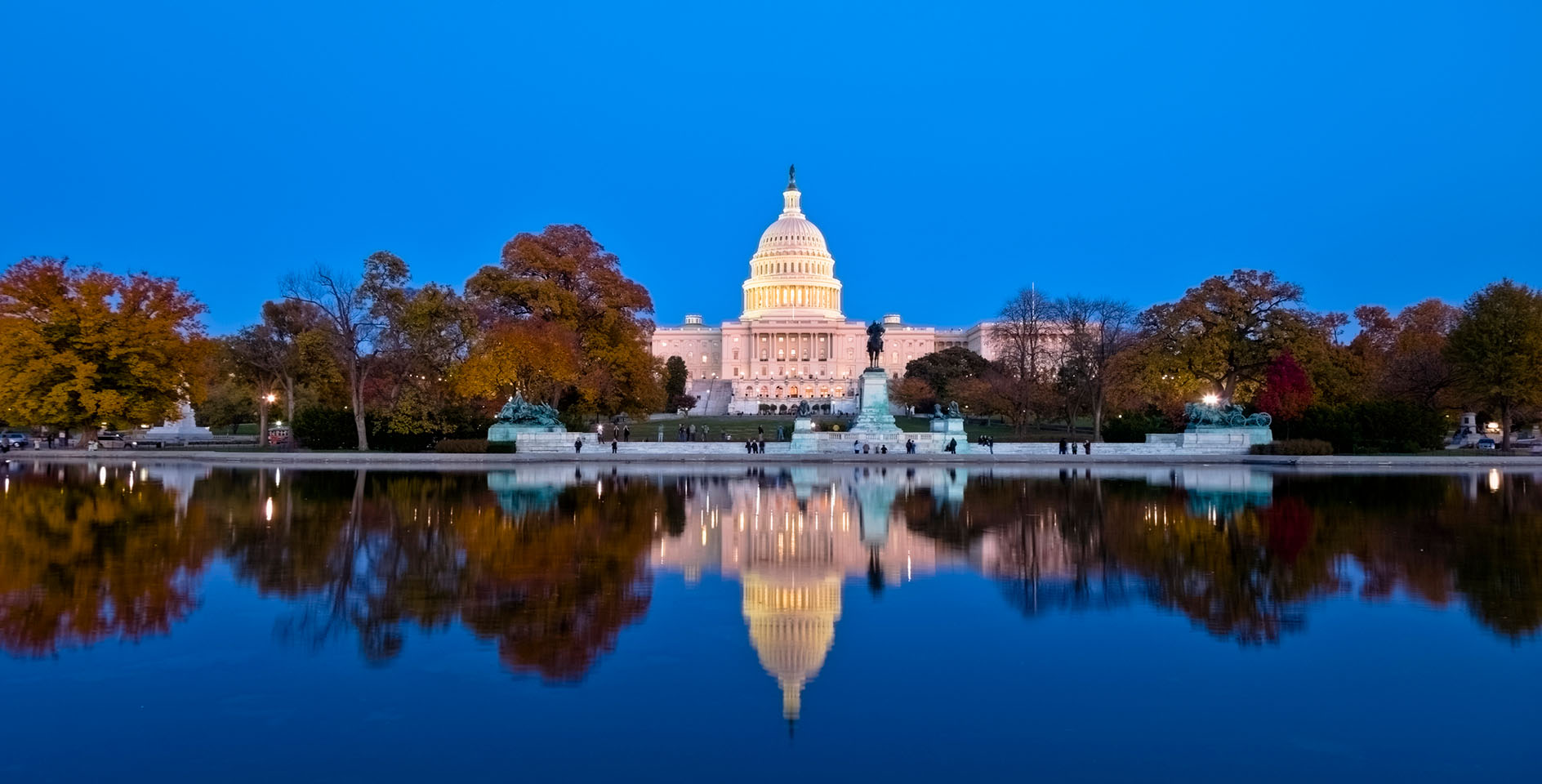On June 27, in a 6-3 decision, the U.S. Supreme Court ruled that “the Free Exercise and Free Speech Clauses of the First Amendment protect an individual engaging in a personal religious observance from government reprisal.” This is an important decision for religious expression, especially for teachers and coaches’ ability to privately express their religious belief while working for schools.
Justice Gorsuch delivered the opinion of the court, with Justices Roberts, Thomas, Alito and Barrett joining. Justice Kavanaugh also joined the majority opinion, except as to Part III–B. Justices Thomas and Alito filed concurring opinions. Justice Sotomayor filed a dissenting opinion, in which Breyer and Kagan joined.
What is this case about?
Coach Kennedy, a high school football coach in Bremerton, Washington, had a tradition of kneeling and quietly praying at the 50-yard line after football games. Kennedy was suspended by Bremerton High School, and later fired because of his private prayers. In fact, the “District Court found that the ‘sole reason’ for the District’s decision to suspend Mr. Kennedy was its perceived ‘risk of constitutional liability’ under the Establishment Clause for his ‘religious conduct’ after three games.” He filed a lawsuit against the school district, arguing that the school’s actions violated both the First Amendment’s Free Speech and Free Exercise Clauses.
Our brief to the court stated that, “Coach Kennedy . . . acted after a game, without directing his speech or conduct toward any particular audience, without anyone in compulsory attendance, without his inviting anyone, and on an outdoor field open to the entire public (not just students and other school employees).” It goes on to state, “this was a private gathering of like-minded individuals, and that gathering was itself shielded by the First Amendment protections of religion, speech, and assembly.”
Kennedy was simply exercising his constitutional right to free exercise and free speech. The Free Exercise Clause of the First Amendment “protects religious exercises and the Free Speech Clause provides overlapping protection for expressive religious activities.” Both of these Constitutional protections were violated in this case.
The Lemon Test
In addition to ruling specifically for Coach Kennedy, the court in this decision also officially replaced the Lemon Test, a three-part test from a 1971 ruling that determined when a law was in violation of the Establishment Clause. As the opinion notes,“The Lemon approach called for an examination of a law’s purposes, effects, and potential for entanglement with religion. In time, that approach also came to involve estimations about whether a ‘reasonable observer’ would consider the government’s challenged action an ‘endorsement’ of religion.”
In recent years, the court has increasingly disfavored the Lemon Test. Justice Gorsuch states that due to “the apparent ‘shortcomings’ associated with Lemon’s ‘ambitiou[s],’ abstract, and ahistorical approach to the Establishment Clause—this Court long ago abandoned Lemon and its endorsement test offshoot.” Further, “the Court has explained that these tests ‘invited chaos’ in lower courts, led to ‘differing results’ in materially identical cases, and created a ‘minefield’ for legislators.”
Despite the previous abandonment of this test, the court had not officially replaced Lemon with a new standard, leaving a void of confusion for lower courts and legislators. However, in this decision, the court provided needed clarity and ruled that “in place of Lemon and the endorsement test . . . the Establishment Clause must be interpreted by ‘reference to historical practices and understandings.’”
The Lemon Test restricted religious expression, and the justices rightly ended this “ahistorical” standard.
How did the ERLC engage this case?
The ERLC was involved with briefs at the petition for certiorari stage and before the Supreme Court on the merits. The brief urged the high court to accept the case and reverse the Ninth Circuit Court of Appeals’ decision that Kennedy’s act of praying—ultimately joined by some players—constituted a government establishment of religion.
In 2018, ERLC joined eight other groups in a brief that called for Supreme Court review and repudiation of the Ninth Circuit in the case, but the justices declined to grant the request at the time. The case returned to federal court and worked its way back through the judicial system. The brief the ERLC signed argued that,
. . . the school should have allowed the exercise of the constitutional freedoms to speak, pray, and assemble. It cannot convert its improper halting of such practices into a legal virtue by resorting to the Establishment Clause, as that clause certainly did not proscribe the unassisted, privately initiated exercise of religion by Coach Kennedy.
The Establishment Clause does not require public schools to be policed as religion-free zones, and a reasonable, objective person understands that teachers can act in private capacities, even while on school grounds and even during school hours. When teachers do so, their freedoms are not to be curtailed, and they are not to be punished.
The ERLC will always protect religious freedom and religious expression, before the courts, Congress and the administration.
Why does this decision matter?
This decision strengthens religious expression for teachers, coaches, and people living out their faith in the public square. As the majority opinion states, the Free Exercise clause “protects not only the right to harbor religious beliefs inwardly and secretly. It does perhaps its most important work by protecting the ability of those who hold religious beliefs of all kinds to live out their faiths in daily life through “the performance of (or abstention from) physical acts.” As the court rightly acknowledged, the Establishment Clause, the Free Exercise Clause and the Free Speech clause are not separate units, but rather appear in the same sentence of the same Amendment.” Our First Amendment rights travel together, and must be equally honored and protected.
As ERLC’s acting president, Brent Leatherwood said,
“As any Christian knows, our faith is deeply personal and rightly shapes every aspect of our lives. We live out our faith in any number of ways, both privately and publicly. Today’s case centered on the latter and the Supreme Court rightly determined that an individual employed by a school does not forfeit his or her constitutional right to free expression simply by entering ‘the schoolhouse gate’ or, as it were in this case, the field of play.
“Moreover, today’s decision reaffirms another aspect of constitutional law: Our First Amendment rights travel together. We, and many others, have long held that religious liberty is our nation’s first freedom and that it bolsters and strengthens other foundational rights. The Court today strengthened this perspective by writing that the clauses of free expression, establishment and free speech are all complementary. If it were not already clear enough, this Court views religious liberty as a bedrock right in our free republic.”
This case is another victory in a long line of jurisprudence that further expands Americans’ robust rights of religious expression. Across our convention of churches, faithful Southern Baptists can be found working in the public education sector. As Christians, Scripture calls us to do “all in the name of the Lord Jesus, giving thanks to God the Father through him” (Col. 3:17). This decision bolsters believers’ ability to do this in the public square without fear of repercussions.






